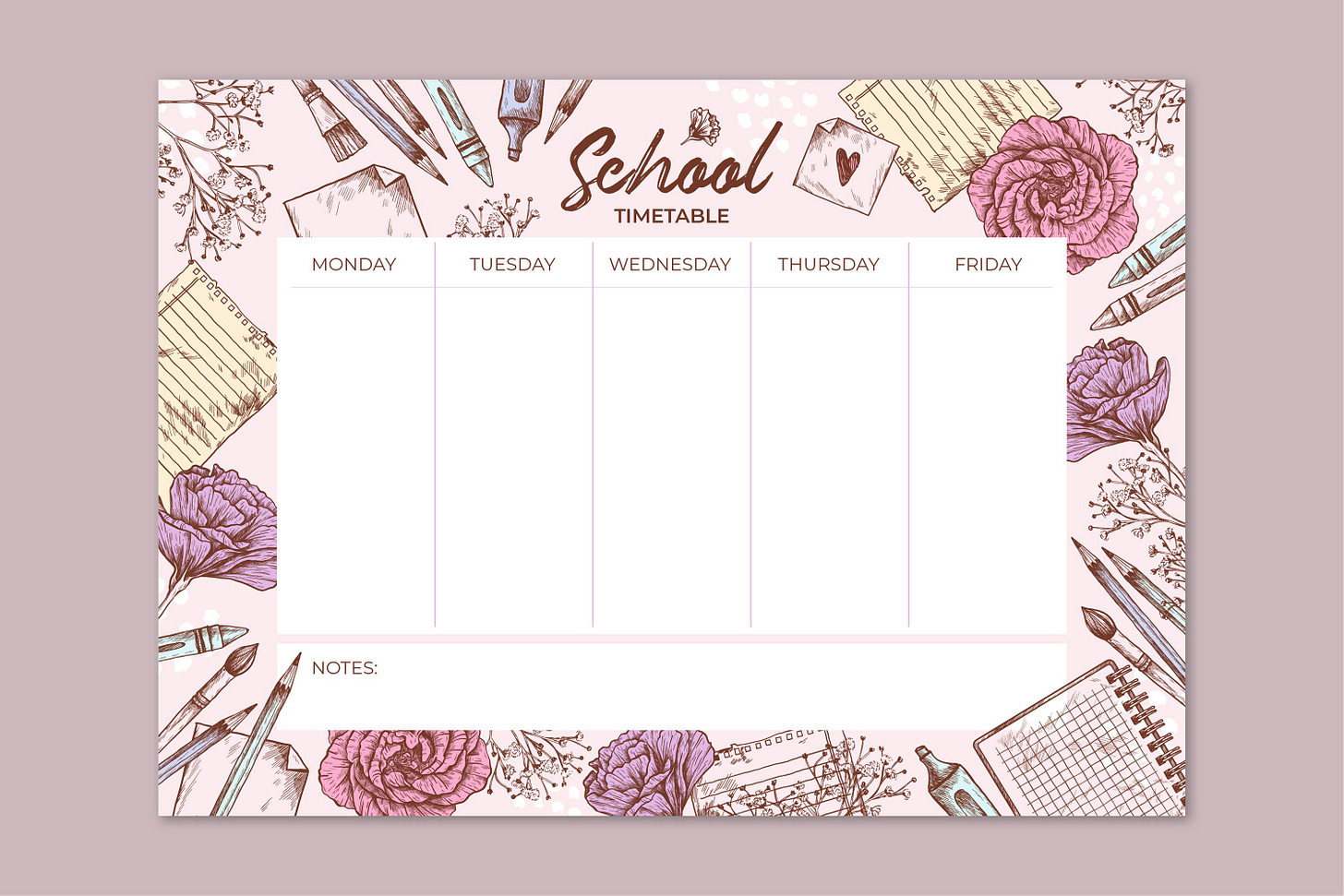The wonders of a study timetable: Make your teen’s study more manageable AND productive
Sometimes the best solutions are so simple they’re staring us right in the face.
Hi there,
Today I want to help your teen get organised by giving you step-by-step instructions on how to make a weekly study timetable.
When it comes to studying, there’s no such thing as a short-cut. You only get out of your study what you put in.
But in saying that — there IS something you can help your teen with that has huge benefits.
Not only will having a study timetable help your teen keep up to date with their homework, it will help them study consistently throughout the year.
And when students apply themselves DURING the semester/term, and not just in a mad rush two weeks out from exams, their exam study is way more manageable, much less scary, and much more effective.
Why is having a study timetable so effective?
Because our brains really like patterns.
Even if we don’t want to admit it, we thrive on consistency and routine. We function most effectively and efficiently when we stick to good habits.
A weekly study timetable will help your teen develop better habits during the semester/term, and provide them with a framework on which to build their study routine.
If your teen is in the habit of NOT studying and NOT doing their homework on a regular basis, it’s going to be really hard for them to suddenly become a diligent student when exam time rolls around.
This is why it’s important to build good habits DURING the year, so that you’re already on track when it’s time to embark on more intense exam study.

Even if your teen starts off lightly, and builds up the number of hours they study for as exam time approaches, this will still be a FANTASTIC start to implementing better habits and ensuring that their time outside of school is spent more wisely.
Having a timetable makes us more accountable for our time. When something is scheduled in your timetable/calendar, you’re much more likely to stick to it.
Your teen is much more likely to stick to a study plan when it has been scheduled in advance, and will achieve a lot more than if they only study ‘when they feel like it’.
Steps for making a weekly study timetable
I don’t want to set down too hard-and-fast rules for how to make a study timetable, because as always I want your teen do what works for them, but it should be easy to read and it really doesn’t need to be complicated.
What IS important is that it includes everything your teen has on in an average week of school.
Here are the steps I would follow:
Start by filling in school hours.
Then fill in time for extracurricular activities and any other commitments on during the week. It’s even a good idea to schedule in dinner times and break times.
Then fill in when your teen is going to study. This should include not only time to complete homework, but when they are going to actually study and go over what they’ve been learning at school.
How long should their study sessions be?
During the term / semester I think your teen should be focusing on keeping up with what’s going on in class, rather than busting their guts and engaing in exam-preparation-like study.
The school year is a marathon not a sprint.
As a general guide I would suggest that your teen is doing 1-2 hours of school work each day during the school week. This time would include any homework set, brushing up on anything they need to catch up on and working on any assignments.
I also generally think that it’s better to study in small chunks of time, taking regular breaks, and to do so consistently, than it is to study in massive chunks only sporadically.
The key takeaway here is not to set down military rules; it’s to give your teen some simple tools to help them keep on track during the school year.
(For a detailed breakdown on how much study your teen should be doing check out this article.)
Now the REALLY IMPORTANT part…
Actually sticking to the timetable!
Sticking to a routine and being consistent in their study habits is what will propel your teen towards getting the grades they are capable of.
Getting used to studying and doing homework REGULARLY is the key.
Easier said than done, right?!
For sure. I am not expecting your teen to transform into Hermione Granger overnight. But still, making a study timetable is a fabulous first step towards building those good study habits, getting a study routine going, and making sure that their week and therefore their study is more organised and productive.
Extra tip
For extra brownie points all ’round, once your teen has made their study timetable for the week, you could make a few copies and stick it around the house — on the fridge, on your teen’s bedroom door, and of course in their room.
This will help them stay accountable to themselves AND to you, and therefore make them more likely to stick to their timetable.
Thanks so much for reading.
Clare


